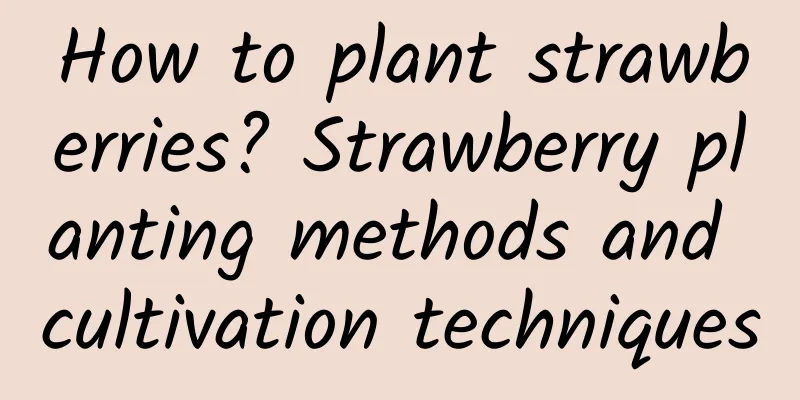How are blueberry seedlings cultivated?

|
Blueberry is a very popular fruit nowadays. Blueberry fruit is rich in various vitamins, has strong medicinal value and nutritional health functions, and its cultivation has high economic benefits. So how are blueberry seedlings cultivated? Let’s learn more about it below. 1. Seedling cultivation method The main methods of blueberry seedling cultivation include cutting seedling cultivation, seed propagation seedling cultivation and tissue culture rapid propagation seedling cultivation. However, cutting seed propagation and seed propagation have disadvantages such as low survival rate, small reproduction coefficient, long cycle and seasonal restrictions. They cannot be used for year-round seedling cultivation and cannot meet market demand. Tissue culture rapid propagation seedling cultivation can produce a large number of healthy seedlings in a short period of time. Therefore, blueberry tissue culture rapid propagation has become the most widely used seedling production method. 2. Tissue culture seedlings The blueberry tissue culture seedlings can be divided into the steps of explant treatment, test tube seedling cultivation, and plug tray seedling cultivation. 3. Explant treatment First, we need to select appropriate explants. Explants should be collected in spring and autumn when blueberries are growing vigorously. Select vigorous and strong new branches of the year from healthy plants with typical characteristics of the variety, and take tender stem segments with terminal buds as explants. The culture medium uses modified WPM as the basic culture medium to facilitate rapid induction of budding. 4. Cultivation of test tube seedlings Through primary induction culture, subculture and value-added culture, rooting and seedling culture, and after 25 to 30 days of rapid growth, the test tube seedlings can grow to 6 to 8 cm in height, and each plant will develop 3 to 5 new roots with a length of 1 to 2 cm. 5. Plug tray The tube seedlings are transplanted into plug trays, and after a period of cultivation, blueberry tissue culture plug tray seedlings are formed. The substrate in the hole tray is made of moss and peat in a ratio of 3:1. It is required to have a certain degree of fertility, be loose and breathable, and the pH of the substrate should be between 4.5 and 5.5. The plug tray seedlings are then cultivated into qualified blueberry seedlings through hardening, transplanting and post-transplantation management. That’s it |
<<: How to build a trellis and how to pull climbing roses
>>: How to propagate climbing roses? Can they be grown by cuttings?
Recommend
When is the right time to sow fish?
Fish sowing time The crocodile belongs to the Scr...
How to grow Jade Plants on the balcony, what should you pay attention to
1. Light It likes sufficient light and cannot gro...
How to save gardenia from yellow leaves
1. Increase watering 1. Reason: Gardenia has rela...
How to prune the hanging bamboo
How to prune the hanging bamboo First, the growth...
Can lettuce be hydroponically cultivated? Hydroponics cultivation methods and precautions
Can lettuce be grown hydroponically? Lettuce can ...
Pests and control methods of Gloxinia
Gloxinia pests: Thrips symptom Thrips are a commo...
Cultivation methods and precautions of blue stone lotus
Blue stone lotus needs more light to grow The lea...
What to do if Anthurium does not grow leaves
Why doesn't Anthurium grow leaves? The main r...
What is the best month to plant peony flowers? What is the best season to plant them?
Which month is suitable for planting peony flower...
What is the reason why the leaves of potted lemon turn yellow and fall off?
Nowadays, many people like to grow lemons in pott...
How to care for dancing orchid
1. Maintenance methods 1. Light: Dancing orchid i...
Fruit tree planting management guide in September
September, which is early autumn, is a critical p...
How to grow loofah to get high yield? Do I need to top it off?
Luffa is a common vegetable with high nutritional...
Who says cuttings are difficult? I wrapped a layer of soil around the branches, and countless large white roots grew out!
High altitude layering 1. Choose relatively sturd...
Why is the crabapple flower called the heartbreak flower?
1. Toxicity There are many varieties of crabapple...









